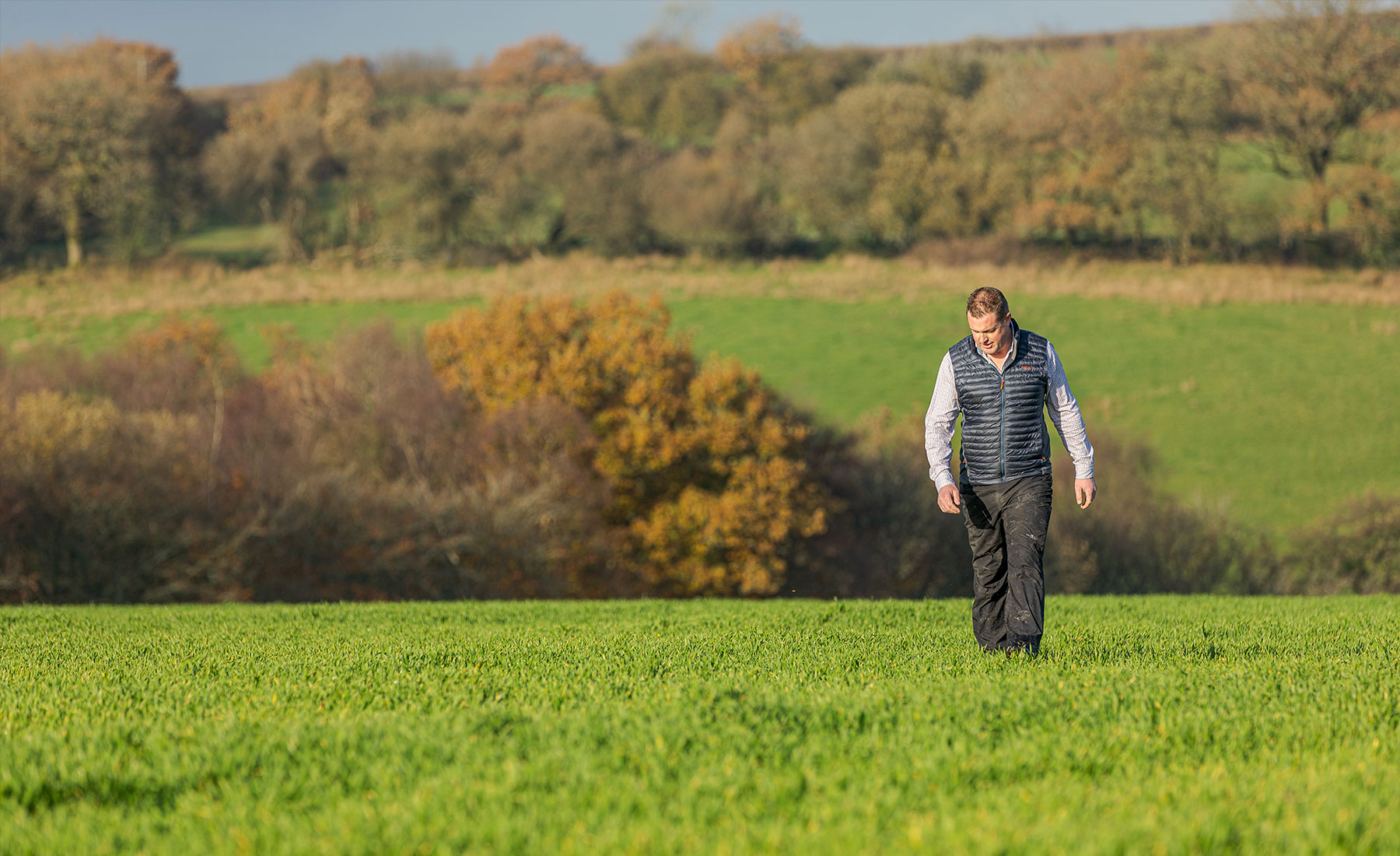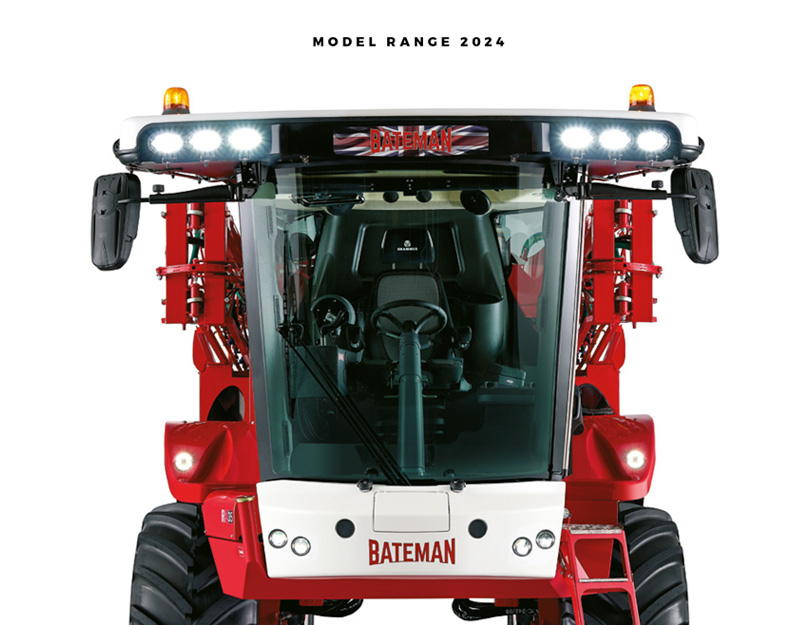
Walking the walk.
The very first Bateman sprayer was designed and built by Richard Bateman in 1976 to enable him to continue spraying on his farm during demanding conditions. That farm was Bycott Farm in Devon, the home of Bateman Sprayers. We’ve farmed at Bycott since 1968, it remains a working arable farm today.
Our agronomist is Matthew Alford. Matthew has worked with us for the past 4 years, but our association stretches much further. Matthew takes up the story…
“You might say that living about 5 miles from the factory I’ve grown up with Bateman. Even during my early spraying career in Cambridgeshire, I was in the cab of an RB15 and when I came back to North Devon to work for a farming and contracting business I operated a Bateman Hi-Lo, an RB25, and then an RB26.
“I spent 5 years contract spraying at Bycott Farm, before joining Agrii. It’s definitely the ideal environment to put a sprayer and spraying technology through its paces; in particular the high altitude and undulations, it’s also quite open to the elements, therefore we are operating in very difficult conditions and spray days can be quite tricky.
“Bycott Farm means a lot to me, when the opportunity to become involved as the farm’s Agronomist presented itself I grabbed it with both hands. I sat down with Jason and we sketched out a medium-term plan for the farm which included a series of short-term easy wins.
“It’s very much a team effort. I visit the farm approximately every 2 weeks, I walk the fields during each visit and I’m in regular contact with Jason. I work very closely with our sprayer operator to manage the spraying plan and liaise with all the other contractors involved in operations on the farm.
“One of the first changes we made was to swich from bagged fertilizer to liquid fertilizer. We installed an OMEX tank on farm to enable the sprayer to apply everything that the crop requires. We’ve moved to 36m tramlines, we’ve got small fields meaning lots of headlands, which means that the edge of the crop is now receiving 100% of what it needs.
“Thirty years or so of continuous combinable cereals had taken its toll, it was heavy farming – late combining and drilling. Jason and I set out to improve soil health by deep subsoiling to lift the soil profile and to begin applying organic material – composts plus chicken manure.
“We’ve switched from combining to wholecropping which is now harvested 4 – 6 weeks earlier, giving us a window in the summer during the better weather to prepare for the next season in terms of ditch cleaning, application of organic material and planting of summer cover crops.
“The farm is approximately 80 hectares which is now split into 45 hectares of winter wheat – either continuous wheat or first wheat, 15 hectares of winter barley with the remainder divided between winter oats or spring oats. 2022 was the first year we’ve grown oats on the farm, this allowed us to go back with some first wheats during the autumn.
“Another first for Bycott was the introduction of 10 hectares of an overwintered cover crop mix. The mix of predominantly sunflowers, mustard, radish, phacelia, vetch and berseem clover was put in during June 22, will be flailed off during March 23 and we’ll direct drill spring oats into these fields.
“Our yields for 2022 were exceptionally good. We increased our tonnage by more than double that of 2021, the quality was also much better, which is down to the investment in raising soil organic matter levels over the past 3 years. All of this is very pleasing, especially when you consider it’s a heavy farm and the dry season we had in 2022. However, there’s always room for improvement, I hope that 2023 will be even better for the farm, depending on the weather Mother Nature sends us.
“The strength of Agrii is the relationship between the farmer and the agronomist, I think that is typified by the work taking place at Bycott Farm and the results we are achieving.”
Would you like to book a demo? Contact us today and arrange for the Bateman Demonstration Team to visit your farm.

